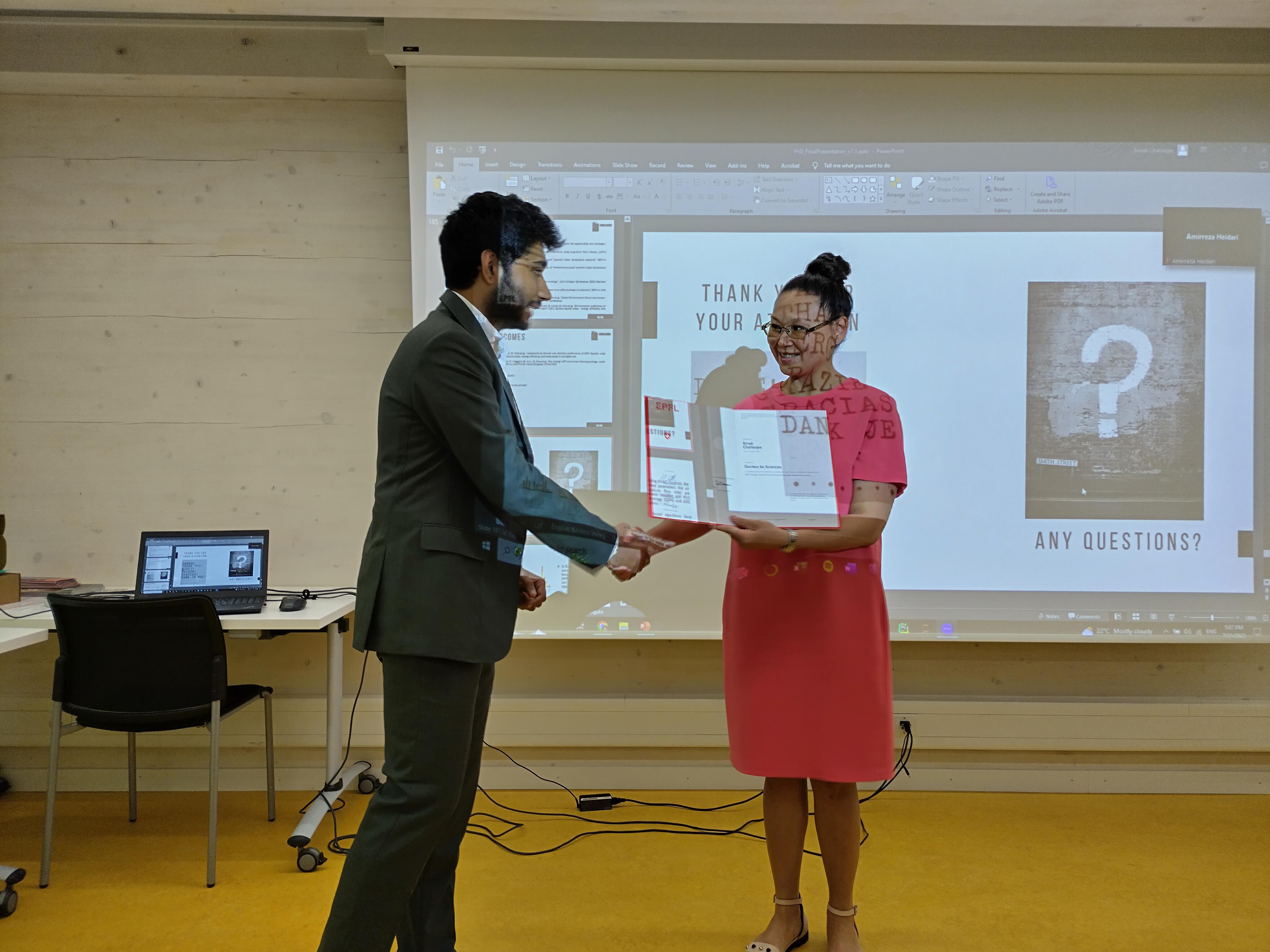Successful graduation of Dr. Arnab Chatterjee

© 2023 EPFL / T. Messsina
After devoting 4.5 years to his studies at EPFL, Arnab Chatterjee reached a pivotal moment in his academic journey as he successfully defended his PhD thesis. This significant accomplishment was marked by his public presentation at the Smart Living Lab on July 21, 2023. Among the attendees were Arnab's colleagues and supportive friends, who eagerly celebrated this remarkable milestone, recognizing the dedication and hard work that led to this achievement in his career.
Maintaining narrow temperature limits in buildings often results in limited metabolic activity of occupants, accompanied by high operational energy usage. An alternative approach to mitigate this energy consumption is to expand the indoor temperature range. Dynamic modulation of indoor temperature over a broader range, considering occupants' thermal comfort and well-being, can be more viable than static setpoints. However, conventional control techniques face challenges in implementing such policies. Hence, Arnab's doctoral research, supervised by Assist. Prof. Khovalyg, focused on developing an innovative deep reinforcement learning-based control framework "Dynamic Indoor EnvironmenT (DIET) Controller" aimed at optimizing energy usage and enhancing well-being in office buildings. This framework, trained primarily using deep deterministic policy gradient (DDPG), addressed building thermal control as a cost-minimization problem.
Arnab adopted a two-step approach, initially training the controller in a co-simulation environment before validating its performance in real-world scenarios. Co-simulation results showcased significant HVAC energy savings (up to 40%) and increased occupants' exposure to a wider temperature range (18-21°C). Subsequent testing in the ICE climatic chamber demonstrated further energy reduction (28-64%) compared to rule-based controls, along with a dynamic indoor environment for 96% of occupied hours. These findings underscore the effectiveness of the DIET Controller in reducing operational energy while promoting metabolic adaptations through wider temperature exposure. Ensuring the controller's effectiveness across various system configurations and operational contexts involves further steps of retraining and fine-tuning.



